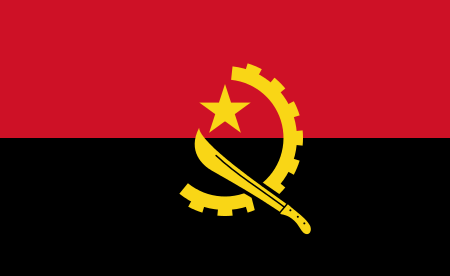The Facebookepeida Internet

If you’re reading these words, it means you have access to the Internet. And there’s a good chance you have rather high-quality access, too — fast speeds, even using a mobile device when not connected to wi-fi. And that’s pretty much the norm in your life. Even if, sometime today, you’re momentarily in a place without Internet access, you know that the frustration of being off the grid is only going to be temporary. Your Netflix or Facebook fix is only a few minutes or (gasp!) hours away.
But that’s not true in many places around the world. There are plenty of areas — typically in developing nations — where Internet access is fleeting and, in any event, expensive. Take, for example, Angola. Located on the South Atlantic coast of Africa, the nation is home to about 25 million people, the vast majority of which who live on only about $10 per day. High-speed Internet, which can run a few dollars for a few dozen gigabytes of data, is a luxury that few can afford.
To fill this void, two Internet giants — Wikipedia and Facebook — have stepped in. Each has a philanthropic program designed to help people on the wrong side of the digital divide gain access to what we once called the information superhighway.
First up is Wikipedia’s parent organization, the Wikimedia Foundation. It developed a program called Wikipedia Zero, partnering with local telecom operators to offer free access to Wikipedia and related sites. As its website explains, “the operator ‘zero-rates’ access to Wikimedia sites in their billing system, so their subscribers will not incur data charges while accessing Wikipedia and the sister projects on the mobile web or apps.”
Facebook’s program is similar. Via something called “Free Basics,” Facebook also works with operators to bring free access to a limited number of websites to those in various areas. Per the Free Basics website, the program “provides people with access to useful services on their mobile phones in markets where internet access may be less affordable. The websites are available for free without data charges, and include content on things like news, employment, health, education and local information.” And of course, it means you can Facebook to your heart’s content without worrying about your budget.
It’s pretty good, all things considered — free access to Wikipedia and Facebook isn’t nothing. On the other hand, you’re not going to be able to stream video or anything like that.
Unless you get creative.
Angolans, per VICE, have figured out a way to get around these restrictions. Beyond the English-language Wikipedia site, the Wikimedia Foundation runs a number of other websites designed to spread free knowledge. There are sites like Wikimedia Commons, a repository of more than 30 million free-to-use images; Wikiversity, a collection of learning resources; and hundreds of Wikipedias in non-English languages ranging from Croatian to Esperanto. The “anyone-can-edit” ethos of Wikipedia applies to all of those sites, and the amount of bandwidth that Wikimedia takes up is extraordinary. Combined, anyone with access to the sites — even if your access is through Wikipedia Zero — can upload virtually anything into a Wikimedia website, at least temporarily.
And that’s exactly what Angolans have been doing. In the words of VICE, “because the data is completely free, Angolans are hiding large files in Wikipedia articles on the Portuguese Wikipedia site (Angola is a former Portuguese colony)—sometimes concealing movies in JPEG or PDF files.” And, once those files are uploaded, they’re telling their friends, using Facebook Free Basics as the way to connect, setting up closed groups to share links to those files hidden on Wikipedia. In essence, the people using this loophole have created, as VICE states, “a totally free and clandestine file sharing network.”
Wikimedia, for its part, is left without many good ways to prevent this apparent abuse. As Techdirt explains, short of shutting down these free services, the Foundation is left “playing whack-a-mole” or somehow pre-clearing people to use Wikipedia Zero. Unsurprisingly, if you’re familiar with the culture that is Wikipedia, the whack-a-mole strategy is likely going to win out; “the Wikipedia Zero team says that large-scale bans or access changes are ‘not on the table.'” per Engadget. (Facebook doesn’t seem to care at all, perhaps because the large and often copyright-infringing files aren’t on their services.)
So for now, if you’re in Angola and want to watch a movie, you may not be able to get to Netflix — but you may not have to, either.
Bonus fact: As of this writing, there are 293 different version of Wikipedia covering 292 different languages (the “Simple English” one is English, but using a limited vocabulary). If you take a look at the Wikipedia-developed list of Wikipedias, you’ll not see a Klingon language one on the list. That wasn’t always the case. In June of 2004, a group of Wikipedia editors began work on a Klingon-language Wikipedia, finding some initial success. But Wikipedia’s leadership closed the project in August of 2005, “in part because the fictional origin of the language means that there are no real-world speakers in existence who could form a community.” The website moved to Wikia and is available here; it invites anyone to add to the site “as long as you do so in Klingon.”
From the Archives: Type Cast: Why the Japanese version of Facebook asks for your blood type.
Take the Quiz: Name the four countries that border Angola.
Related: The Klingon Dictionary. 4.6 stars on 92 reviews. Qapla’!
